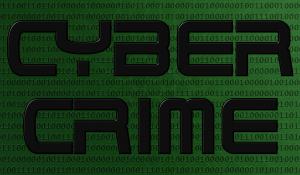With the Release of gTLD's Comes Increased Opportunities for Cybersquatting
Recent data shows more than 16 million generic top-level domain names have been made. With such rapid growth, threats of increased cybersquatting is apparent.
NEW YORK, NEW YORK, UNITED STATES OF AMERICA, April 7, 2016 /EINPresswire.com/ -- Data reported by the World Trademark Review shows that more than 16 million generic top-level domain names (gTLD) registrations have been made and that half of all of those names were purchased in China. Of course, China is a large country, so we can assume that many of these domain name purchases were for legitimate businesses operating in China. However, with such large number of domain purchases being made in such a short time, it is likely that many of these domains are purchased in an attempt to practice "Cybersquatting."What is Cybersquatting?
If you think that just the word alone sounds nefarious, you're right. Cybersquatting occurs when someone takes your trademarked business name and essentially holds it hostage by buying up internet domains using that name and charging you sometimes exorbitant fees to reclaim them.
Enterprising criminals started cybersquatting back in the days before many business owners realized the power of the internet. When a company decided to create a web presence for their existing business, they would learn that someone else had secured the domain name already.
Generic Top-Level Domains
With new gTLD’s, criminals now have new opportunities for cybersquatting. Originally, most websites on the internet had one of five domains, including .com (commercial businesses), .org (non-profit organizations), .edu (educational institutions), .net (originally for internet service providers), and .mil (for the military.) There were also some country-specific and international extensions.
That list of domains has been extended to now include .biz, .info, .name, .aero, .pro, .museum and .coop, among others. From a business standpoint, this means there are more opportunities to have a website domain that reflects and describes the business.
However, from a cybersquatting standpoint, this means there are even more opportunities to purchase related/similar domain names that can later be sold back to the business, earning a profit for the middleman.
Trademark attorneys are watching this trend carefully; there is speculation that there will be a corresponding rise in the number of trademark domain disputes.
--
Cordero Law LLC is a law firm based in New York City that’s main practice areas include business law, entertainment law, and intellectual property law.
Julian Cordero
Cordero Law LLC
212-960-8890
email us here
Legal Disclaimer:
EIN Presswire provides this news content "as is" without warranty of any kind. We do not accept any responsibility or liability for the accuracy, content, images, videos, licenses, completeness, legality, or reliability of the information contained in this article. If you have any complaints or copyright issues related to this article, kindly contact the author above.

